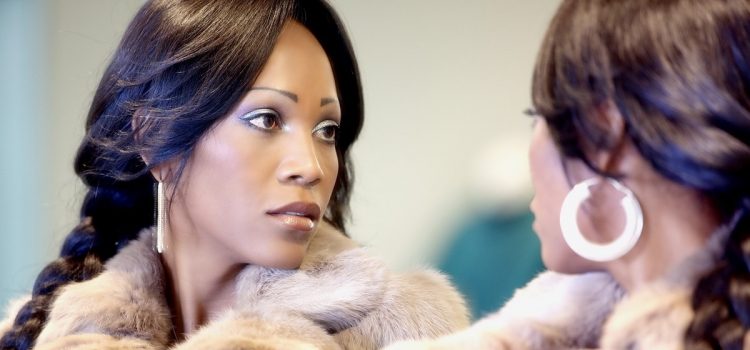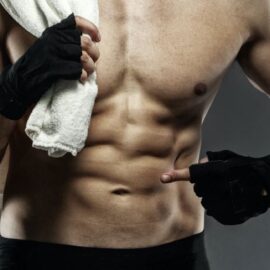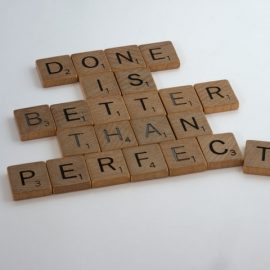
How often do you think about your body and appearance? Are those thoughts usually connected to humiliation or healthy pride? Does social media help or harm your body image?
These days, it’s not uncommon to hear terms such as “body shaming” and “body issues.” In a culture seemingly obsessed with appearance, it’s hard to feel good about our bodies and focus on what matters most.
Continue reading for three body image exercises that will help you put things in perspective and take a more healthy approach to the way you view your body.
Exercise 1: Start With Simple Practices
Coming face-to-face with your body can be intimidating even for those who don’t struggle with severe body image issues. So, the first body image exercise is a set of simple strategies based on an article from the National Eating Disorders Association.
- Make a list of everything your body helps you do. This includes playing sports, exploring nature, and spending time with your children.
- List the things you like about yourself that aren’t related to your appearance.
- Reflect on the idea that beauty is a state of mind rather than the current state of your body. Explain the concept as if you’re talking to you as a child.
- Identify the supportive friends and family who appreciate you for who you are. Consider ways you can emphasize time with them and deemphasize the influence that less supportive people have on you.
- Come up with some thoughts you can hold when you’re feeling negative about your body, such as “My body helps me explore the great outdoors” and “My life’s meaning doesn’t depend on how I look.”
- Identify the clothes you have that make you feel good about yourself. Prioritize wearing them, and buy similar garments when it’s time to go shopping.
- Do something nice for your body, such as painting your nails, taking a relaxing shower, or applying scented lotion to your skin.
- View social media through a critical lens. Remember that many images are enhanced, people generally post only the most flattering photos of themselves, and what you see is not a representative sample of general reality.
- Dedicate some time to helping others, which is one of the best ways to feel better about yourself.
Exercise 2: Focus on Positive Health
The second body image exercise is based on the concepts in The Power by Rhonda Byrne. She asserts that good health means more than just the absence of illness. You’re not truly healthy unless you feel energetic, happy, and free of stress. Think about how you felt as a child or how children you see today feel. Without the concerns of adult life, children are enthusiastic about life. They wake each day with anticipation and spirit and believe they’re invincible. If you want to be the vision of health, live like a child.
Byrne contends that you must live like a child because children haven’t been corrupted by negative thought patterns that lead to poor health. They have no reason to believe they’re unhealthy or that their bodies are not perfect and strong; so those results don’t come to them.
According to Byrne, the ideals of beauty in society have complicated your relationship with beauty. It’s easy to criticize your own looks when you’re forced to compare yourself to photo-shopped images of models and celebrities. What’s ironic is that, by simply using the force of love to create beauty, you can outshine even the best digitally altered image of yourself.
The beauty you want lives inside of you. When you fill your life and heart with love, that love saturates your skin cells. Your skin glows brighter, signs of aging reduce, your hair gets stronger, and your eyes sparkle. Your magnetic field shines brightly around you, and others won’t be able to look away from the power you emit.
The way we think about our health affects how our bodies function. That’s why it’s important to intentionally focus on positive health.
- What are your current thoughts about your body and health?
- How do you believe those thoughts affect your current state of health?
- What are two things you love about your body?
- What are two ways you’d like to see your body or health change, and what thoughts could help create those changes?
Exercise 3: Create a Body-Positive Social Media Feed
The second body image exercise is based on the concepts in Emily Nagoski’s book Come As You Are. Nagoski asserts that culture dictates our beliefs and ideals. The first negative effect of cultural context she identifies is self-criticism, which usually takes the form of criticism toward the body. Nagoski asserts that the practice of self-criticism is so deeply ingrained in our culture that, by the time girls hit puberty, they’ve already begun to internalize the practice of body shaming. Even before adulthood, young girls’ self-confidence is severely neglected.
(Shortform note: The rise of social media use in recent years by children and teens has greatly contributed to this problem. Research conducted by Facebook, for example, showed that Instagram worsens body image issues for 1 in 3 girls. While research suggests that women are more severely impacted by negative body image, men are far from immune. One study, for example, found that over 90% of men struggle with body dissatisfaction.)
Take some time to overhaul your social media feeds to provide you with more feel-good content.
- Identify three to five accounts on your social media feeds that are regularly body-focused or discuss body-image issues. What are the accounts, and what type of content do they post?
- Take some time to analyze the content and describe how it makes you feel, both generally and about your body. Which accounts make you feel particularly positive or negative about yourself?
- Why do you think these accounts make you feel especially positive or negative? What specific characteristics of their content are driving your feelings? (For example, you might notice you feel bad when seeing posts focused on diet culture.)
- Finally, based on what you’ve learned through this reflection, write down what you could do to add more feel-good content to your social media feeds. (For example, you could follow more accounts that focus on your hobbies rather than body-related content.)






